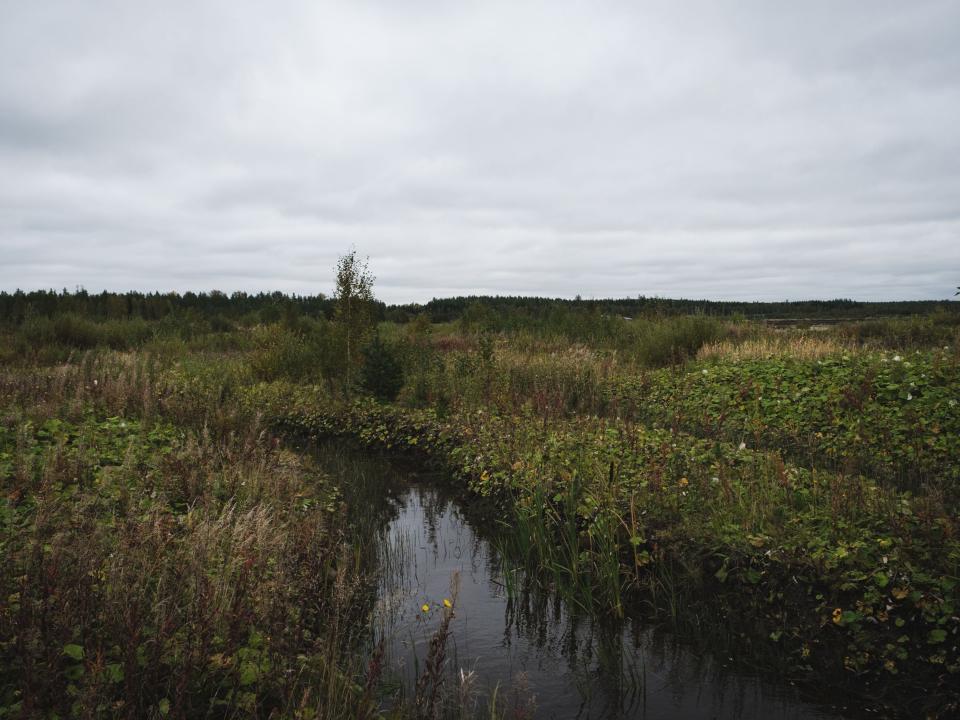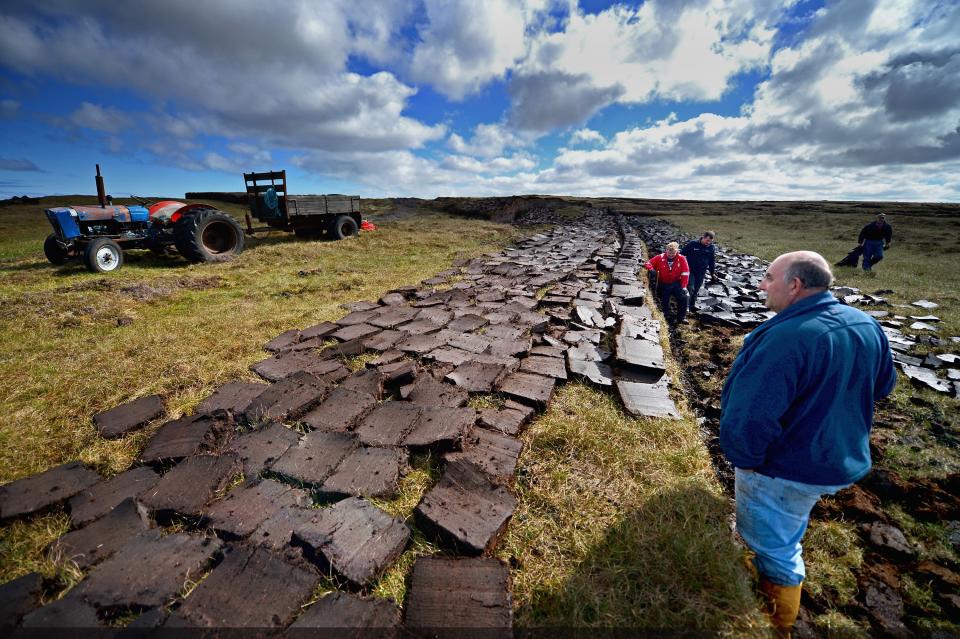Why is peat bad for the environment and what are the alternatives?

The UK’s environment minister George Eustace will announce on Tuesday that the sale of peat compost to gardeners will be banned by 2024, also setting aside £50m to restore 35,000 hectares of British peatland, about one per cent of the total.
For decades, gardeners have used fertiliser products containing peat to start seeds growing, bolster their soil beds and patch up lawns, prizing its ability to retain moisture and oxygen without becoming waterlogged and for its natural ability to safeguard seedlings from fungal disease.
But peat bogssequester an astonishing one-third of the world’s soil carbon and their harvesting for horticultural purposes means removing the living surface in order to access the partially decomposed matter below, a process that causes millions of metric tonnes of carbon dioxide to be released into the atmosphere, the gas a major driver of global climate change.
In the UK, peatlands have been acting as vegetative carbon sinks for at least 10,000 years and also play a role in reducing flood risk, improving water quality and providing a habitat for rare species like hen harriers and sundew plants.
A recent study by Natural England concluded that their maintenance would be “crucial” to ensuring the country achieves its target of net-zero greenhouse gas emissions by 2050, pointing out that a 10-metre deep fenland peat bog can store eight times as much carbon as the equivalent area of tropical rainforest.
“Peatlands are our biggest terrestrial carbon store and home to some of our rarest species,” Mr Eustice is expected to say later at a speech in Delamere Forest in Cheshire. “But only 13 per cent of our peatlands are in a near-natural state [and] due to damage and degradation, our peatlands are emitting 10m tonnes of CO2 per year in England.”
The UK government introduced a voluntary phasing out of peat compost in 2010, aiming to end its use in private gardens by 2020 and commercially by 2030, but the measure was criticised at the time for opting against an outright ban.
Dr Mark Avery of the the Royal Society for the Protection of Birds said then that the government had “missed the chance for an easy win in the fight against climate change... Removing it from composts and grow-bags would cut those emissions at a stroke and would be the same as taking about 350,000 cars off the road.”
A decade on, the strategy was branded an “abject failure” by a collective of gardening experts, conservationists and scientists led by Alan Titchmarsh, who wrote to Mr Eustice last month calling for a blanket prohibition on peat compost sales by the end of this year to draw a line under an “environmental travesty”.
“The ban must be meaningful and include the horticulture industry, and the importation of peat in potted plants,” Professor Dave Goulson of the University of Sussex told The Guardian.
“Anything less looks like greenwashing. Globally, peatlands store half a trillion tonnes of carbon, twice as much as the world’s forests. Unearthing this precious store of carbon is a needless ecological disaster.”
While the Royal Horticultural Society has recently committed to going peat-free by 2025 and is urging its members to follow suit, amateur gardeners have, by and large, been more reluctant to abandon its use.
“Some gardeners just buy the cheapest to fill up their pots and tubs for the summer - peat-free ones are usually more expensive because they have to be processed more,” Susie Holmes, co-author of a report on peat and alternative growing products, told the BBC.

“Keen gardeners tend to buy the compost they know and trust, and up until recently peat-free ones have had a reputation for being unreliable.”
Another potential environmental impact from demand for peat is its being imported from the Republic of Ireland, the Baltic States and Finland, meaning bogs in those countries are degraded and air miles are added to the product’s already significant carbon footprint.
“Having destroyed most of our own peatbogs we’re now helping to destroy those in places like Latvia and Estonia,” laments Steve Perry of Natural England.
“Most gardeners live a long way from peat bogs and may not see the appeal or the value of them but every time someone uses peat they’re contributing to the destruction of this special and important habitat. There are plenty of non-peat alternatives that work almost as well as peat-based products. The more people that use and ask for non-peat ones, the greater the commercial incentive to improve them further.”
Among the alternatives available to gardeners are: natural compost, often homemade from rotted planets, vegetable waste and livestock manures; pine bark; wood fibres; nutrient-rich worm castings; and coconut fibre (coir), although this last also raises air mile questions in that it is grown in India, Sri Lanka and Vietnam.
Read More
Garden centres to be banned from selling peat compost
RHS commits to going peat-free by 2025 and urges gardeners to follow suit
Peat restoration on grouse moors ‘cutting tons of carbon emissions’

 Yahoo Finance
Yahoo Finance 